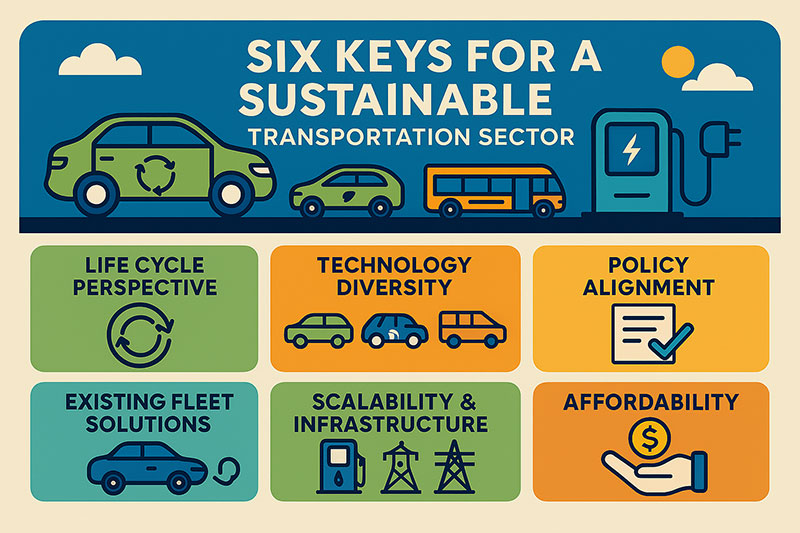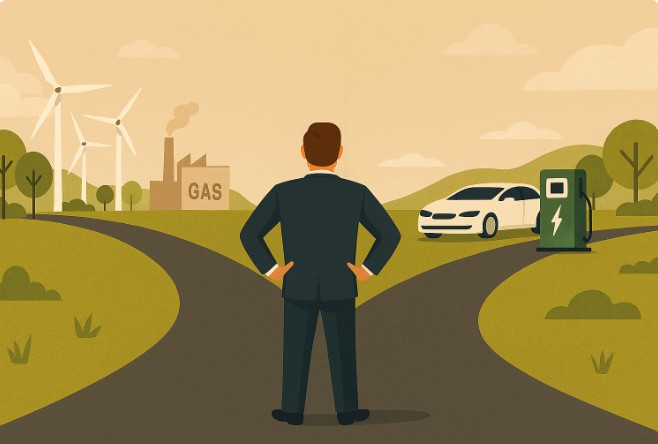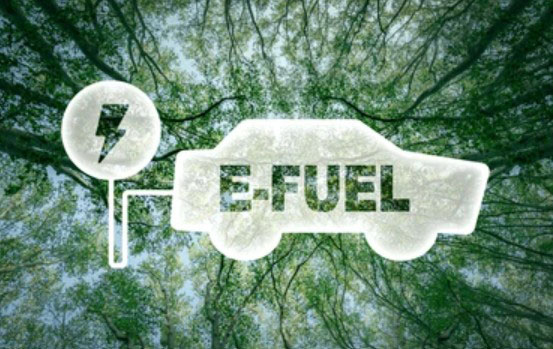April 12, 2022
Rural America makes up almost 20% of the population in the United States. That 20% is on 97% of the land in the country. But it’s a segment that can easily get overlooked by policy makers and local state legislatures.
Current administration policy requires the inclusion of rural and other underrepresented communities when allocating federal dollars (EJ40). Underrepresented rural energy and transportation demands, however, are seldom prioritized, leaving communities “behind the curve” and struggling for support.
In this episode of Carpool Chats, we meet Kirk McCullick, who is with Growmark Industries, a wholesale cooperative serving ag and energy cooperatives, retailers, and businesses in the U.S. and Canada for almost 100 years. Kirk discusses how their company has helped the rural market adapt to the changing landscape of fuels and transportation.
Guest:
Kirk McCullick, Executive Director, Marketing & Business Development, Growmark
Transcript:
Speaker 1 (00:03):
Welcome to Carpool Chats, a podcast brought to you by the Transportation Energy Institute.
Jeff (00:14):
Welcome everybody to Carpool Chats, and today I’ve got my good friend, Kirk McCullick with Growmark on the line with us today. Good morning, Kirk.
Kirk McCullick (00:25):
Good morning, Jeff. How are you?
Jeff (00:26):
Good, very good. Excellent. We’re going to talk a little bit about a segment of industry of consumers that oftentimes gets lost in the shuffle. What’s recently come out with this administration through the EJ40 proclamation or policy, however you want to look at it, is how do we make sure that we are getting the energy and the transportation and all the needs met for rural or other communities that sometimes get missed in everything we do in regards to transportation and fuels?
Jeff (01:12):
Kirk, could you do us a favor and maybe introduce yourself, please? And then I’m really interested in the Growmark story and how Growmark started, because I think that says a lot.
Kirk McCullick (01:29):
Sure, Jeff. Thank you for having me on by the way. My current role is executive director of marketing and business development for our energy division. I’ll get into that a little bit later to whatever degree you want to hear about it, but I’m a little bit of a geek on the Growmark system. So, I always tell people I started my career with this organization in 1984 as assistant branch manager in a two-person branch. So, take that into perspective.
Kirk McCullick (02:02):
That start, that beginning, for me, introduced me to our organization at the grassroots level so to speak. I’ve traveled a lot throughout the organization throughout these years, but I’ve been with the organization my whole career. So, spending that time and the history is important. Organization is 95 years old this year, I believe, I do the math right. We started 1927. The organization, really, it’s roots, even though we’re an agricultural cooperative by nature, it’s roots are in the energy business.
Kirk McCullick (02:43):
We started with local producers as they started to bring on tractors in the early years of the 20th century. They couldn’t get the majors to bring them petroleum products, and so they banded together, they formed local cooperatives and pulled their resources so to speak, so that they could get the supply that they needed. That’s the humble origins of our organization that began almost a century ago, to provide those needs for local farmers. Since that’s the basis of our organization today, it’s expanded well beyond the farm market, especially on the energy side of the business. But our essence is still that helping our customers and members succeed in their businesses.
Jeff (03:37):
I think that’s fascinating, and the role that Growmark plays in the rural community. We still talk about it today, we still talk about how is our internet going far enough, how are we getting power out to rural America, which makes up almost 20% of the population in the United States. I only know that because I googled it for fu. But that 20% is on 97% of the land in the United States. It’s a part of the US that can easily get overlooked by policy makers, by local state legislature. And so what you’re bringing to those communities is enormous. What are some of, over the years, what are some of the tools that you’ve brought out to your co-ops and as far as fuels and energy and education?
Kirk McCullick (04:50):
Well, I think that’s a great point and into your earlier point, Jeff, the other thing that gets lost is the productivity that comes from that portion of the population, whether it’s in agriculture or construction or all the services that rural communities provide and that organizations provide that are responsible for a lot of the livelihoods of people who may not even know that those jobs exist, frankly. And our members, and particularly not just on the energy side but agronomy as well, we spend a lot of time and do a lot of supportive things for what we call the system, the Growmark system. That really, Growmark is the wholesale element in this system, as we call it. The retail element, and we are involved in retail, but the majority of that is indirectly through our member cooperatives. They purchase their products from us and then they market, they do the retail element of the business.
Kirk McCullick (05:55):
But we have always, Growmark has always played a role in that. Whether that’s education, both product, technical, business, everything that we can do to help them remain vital is an important way for us to go to market. We’ve expanded that now across, I can speak, especially to the energy side of the business where I’ve spent the last few years of my career, we’ve expanded that to new members in new geographies, we’ve expanded to our other non-member customers as well. We take the same mentality as an organization of being a teacher, a counselor, doing everything we can to help our customers be successful. And that’s the way that we go to market. There’s a lot of education, there’s a lot of services in there. Growmark provides a number of overriding services particular to our members.
Kirk McCullick (06:54):
The ones that are the center piece of the origins of our organization, fly the FS brand. If you’re out in the country and you see that FS, little rhombus, on whether it’s retail sites or locations, that’s us, that’s our system. And that’s predominantly in Illinois, Iowa, Wisconsin, and Ontario, which is where our historic beginnings were. But it’s also extended now, just about a year ago, a little over a year ago, we began playing the wholesale role for southern states and it’s cooperatives. We had a whole bunch of new members that take us all the way to the east coast, both energy and agronomy. And we take the same mentality with them. We’re in our early stages of relationship, but it’s the way that we go to market.
Jeff (07:57):
I just love that, because we’re in an industry, or the transportation and fuels industry is so incredibly regulated. We have so many new fuels flying at us and everybody is asking the same question. Everybody’s asking what’s next? What do we need to prepare for? And of course with your roots in the Midwest, in Illinois, you had a first-row seat on the renewable fuel standard and on tax incentives on biodiesel. And have you seen a shift in acceptance of biofuels? Is it getting easier to have that conversation with the consumer or your co-op companies?
Kirk McCullick (08:50):
I think it’s gotten much easier, at least from my perspective. You also have to remember that, at our heart, we’re an agriculture organization, so we’re owned by farmers, at the end of the day. Our stockholders are our member co-ops and their stockholders are local producers and customers, that are members of that co-op. It’s really easy for us. It’s always resonated with us to support the grain markets. Biodiesel and ethanol in particular from corn and soybeans is really came natural to us. It didn’t always resonate downstream to the end user and that’s come, I think, a long way just as it’s become more ubiquitous in the industry and in the marketplace where ethanol in particular has just been, it’s become part of gasoline in most places. Most of the consumers are just expecting that element in their fuel. And the whole E15 debate is a separate issue, but it’s just another way to introduce higher levels, in my mind, of alternative fuels into the marketplace.
Kirk McCullick (10:04):
The industry’s dealt with this time and again over the years, introducing new elements into the market as fuel sources or alternative fuels. And so I’ve seen it generally adjust to that. Now, and biodiesel aside, I will tell you, our volumes are much higher in areas that have strong incentives for the consumer to use that. For instance, Illinois has a sales tax exemption on blends higher than B10. Most of the blends, especially in the warmer months, are B11 in the state of Illinois. So, it does… The governmental regulatory issues obviously do impact where those volumes are. But we’re seeing, I think, greater acceptance and we continue to do so. And not just those traditional alternatives, but a lot more conversation these days on some of the coming alternatives that are getting a lot of press, the EVs and so forth.
Jeff (11:01):
And Growmark has gone so far as to walk the low-carbon biofuels down this path. One of the concerns, whether it’s warranted today or not, we still hear about fuel quality, we hear about engine operability. And you guys have gone forward with fuel additive packages to make sure that we are getting the best efficiency out of these engines and that they’re working well with the alternative fuels. Any color you want to shed on the additive end of things?
Kirk McCullick (11:47):
Well, it makes a lot of sense if you think about what we talked about earlier, about who we are and why we do some of those things. We’re a very science-based organization. Our sweet spot, as you might guess, is in heavy fuels and distillates and heavy duty lubricants and so forth. It’s aimed at those, whether it’s transportation, agriculture, commercial structure, those types of marketplaces. And so it’s always been… We have to get a lot better about it. But we’ve always looked at, from the additive perspective, we’ve always looked at performance, maintaining power and efficiency, and how do we get whatever the new engine technology is to perform at its optimal level? We’ve been doing additives for that purpose for over 70 years. And so that gives us a little bit of more of a comfort level with why we’re doing it.
Kirk McCullick (12:45):
But I think the important part for us is it’s got to be based on the science. And there is specific needs of today’s engine technology that requires certain elements in those additives. We work really closely with developers and have a significant percentage of our volume that is advertised. We do gasoline as well, but that’s important. Our niche is not… We have a lot of retail sites flying the fast operating, about 230 of those across our footprint. I think about half of those, very rural, about half of those are unmanned locations that serve that local community or that local marketplace. Even in those areas, those fuels will tend to… they’ll tend to offer additives diesel even in a retail situation. We’ve always been very conscious of that. It’s really about driving what’s best for that producer, for that customer.
Kirk McCullick (13:48):
Almost, I won’t say inadvertently, but one of the side effects of that is that we do improve emissions. You improve fuel efficiency and you improve emission quality. And so we’ve been conscious of that for a long time. We’ve got a number of uses where we also incorporate higher levels of biodiesel with the focus on how do we minimize the emissions coming out of that pipe. And so that’s very focal area that we’re trying to actually put more attention on. As you might guess, on the agronomy side of our business, as the carbon conversation gets more prevalent, we have a lot of interest there. We have a relationship with a company called Indigo where our role is really, at the front end, to help the producer figure out what their footprint is. Indigo has a global mechanism to really actualize the market itself. Those two things are in a little bit of an infancy stage right now on the agronomy side of our business.
Kirk McCullick (14:55):
On the energy side, we’re also looking at that. We’re trying to figure out, that would be not being truthful if I said we got this figured out, but we’re looking at how can we, just being conscious of that conversation and of the importance for our organization to be sustainable, to manage nutrients well, that’s just who we are on agronomy side and the energy side. From the energy perspective, we’re attempting to figure out how do we establish our own footprint better and what are the things that we’re doing, and how can we help our customers do that same thing? As they get opportunities that come to them that are asking them for their ESG strategy, we want to help them have one. And we want to do a better job as an organization of facilitated that, that thinking, that conversation.
Jeff (15:52):
And I can’t… Just about every conversation we’re having on sustainability these days, if you’re really into the weeds, we’re talking about carbon capture, soil maintenance, additive maintenance. And to be clear, for some of the audience, the producer we’re talking about is the farmer.
Kirk McCullick (16:11):
Sorry, that’s our jargon.
Jeff (16:17):
But it is an on point topic, we talk about it every day. And so what you’re bringing, what Growmark is bringing to the table is all the way down to the farm field, is that here are some best practice that, one, will reduce your cost hopefully, because those additives are expensive for soil maintenance and the crop, but also you’re reducing the ultimate carbon intensity of the fuel should that corn or that bean go into biodiesel or ethanol.
Kirk McCullick (16:55):
Our organization has the unique position, I think, there’s not too many that have, can really dig into both sides of that equation too. How do we optimize the performance of the equipment being used and also the practices of production on that farm? And so the same thing that translates across, essentially, out of our customer bases. But we do have the unique position to both help agricultural producers minimize their footprint but also capture their [inaudible 00:17:35] and sequester it, and on the other end, operate as efficiently as possible so that they manage their own footprint as best they can.
Jeff (17:45):
I think Growmark is going to have a pivotal story or a very important story, because as you mentioned earlier, your work is in the distillates. You’re talking heavy duty, offroad vehicles, which is something that doesn’t get discussed hardly at all these days when it comes to CO2 emission, we’re talking about light duty and electrification, but we know the medium and heavy duty’s going to be around for decades. And even more so how, how do we work on the offroad ag sector? Because Cummins just came out with their new engine that can burn any type of fuel, and I haven’t even read into the specs on this thing yet, but the OEMs are finalizing some of their design work on trying to maximize the efficiency of these engines, but they can only go so far. And then it comes down to what are we burning in those engines? And so that’s a whole nother conversation that I’m sure we’re going to have as time goes on.
Kirk McCullick (18:53):
Oh, absolutely. And so we, you and I both, and everybody who’s in this business probably gets a lot of these questions all the time. I do encourage people to breathe that the industry, as it is today, we’ve got a long ways before we turn it over. But at the same time, we have to be conscious of and almost think from a standpoint of being BTU agnostic and just think about, okay, what’s the customer going to want or need from us in the future as energy providers? And how can we start learning about that? How can we start engaging agriculture producers?
Kirk McCullick (19:28):
That discussion doesn’t get very loud in the public area very often, but they’re very interested in these things. Alternative energy sources, just alternative technology. It’s something we talk about internally a lot and probably we’ll do more so. But we do have time to look at it as, okay, how do we get from point A to point Z? And there’s a few steps in between there. And our markets will be, I think, around for a long time, but certain elements, certain alternatives are going to come into play. And so we just, we want to be ready as an organization to adjust to those and make sure we can provide what our members and customers want from us.
Jeff (20:12):
Well, I certainly think over the next couple of years we’re going to be having this conversation. This is not just on the radar, this is the topic of choice for most industries. Kirk, with that, we’re out of time. I really appreciate you taking the time to join us today, and I look forward to hold many, many more conversations on this topic.
Kirk McCullick (20:38):
Oh, thanks for having me, Jeff. Thank you for having me.





